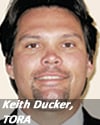Market participants have called for the Tokyo Stock Exchange (TSE) to be financially accountable for trading glitches, in the wake of last week’s outage that halted the bourse’s derivatives trading for over 90 minutes.
The outage hit a range of derivatives including Topix index futures, Japanese government bond futures and options trading. “Market participants are held to a high standard when trading so the exchange should be held to the same. Financial penalties for outages would be a very motivating step to curtailing these issues,” said Keith Ducker, CIO of TORA. Though he added that this would be hard to implement.
The most recent bug is understood to have hit during a moderately slow trading environment, meaning most of those affected only suffered minimal losses. However, this is not the first time in recent memory the TSE has had to halt trading, and previous halts have been more impactful. In February it saw trading suspended on over 240 shares for three-and-a-half hours on the back of a computer problem – its biggest for several years.
“Inevitably, there is damage to TSE as continual system issues erode confidence especially at a time when the exchange is asking investors to back its merger,” said Ducker. “Lack of confidence in the exchange translates to reduced confidence in the overall market but further it forces investors to evaluate alternative means of trading such as proprietary trading systems (PTSs).
Japan has several such PTS, the main ones being SBI Japannext and Chi-X Japan.
The TSE and the Osaka Securities Exchange are merging in a bid for the Japanese market to remain a competitive international powerhouse. In an emailed comment to theTRADEnews.com, the TSE said that the derivatives system to be used after the merger has not yet been decided, and that an announcement will be made in due course. Ducker notes that whichever platform is chosen “should go through an extensive audit by a legitimate third party given the number of incidents both exchanges have seen over the past decade.”
Ducker says that investors need to build in safeguards to better protect their algos against system outages primarily by investing in smarter monitoring technology and evaluating how to manage risk in alternative trading venues. He notes that there may “on the margin”, be a slight downtick in activity for high-frequency trading (HFT) as a result of the recent crash, but it is unlikely to have a serious impact as “we think the HFT strategies in place would remain so, as start-up costs are high, fixed cost investments and funds would be inclined to continue to amortise that investment in spite of glitchy exchange technology.”
The Japanese have been traditionally conservative about employing HFT, though recently they have been showing signs of warming to the strategy. Ducker likewise does not expect this adoption process to be de-railed, saying: “If there is alpha capture in a strategy, investors will simply build in safeguards to better protect their algos against a system outage. Keep in mind that HFT shops are very adept at managing a changing market place.”
Reporting by Harry Thompson
